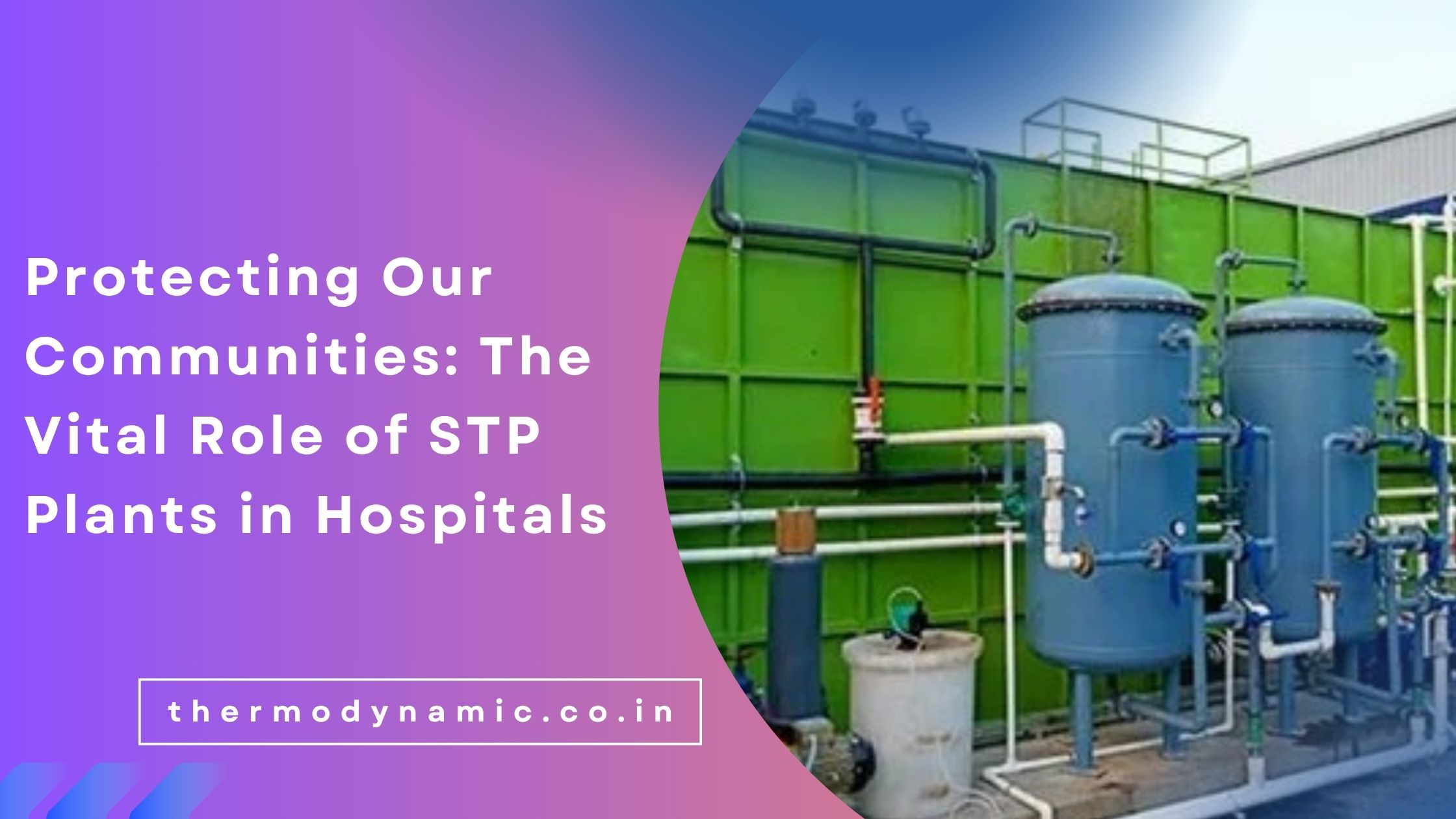
-
-
CALL US NOW
+91 78600 24700

Hospitals are pillars of our community, dedicated to healing and saving lives. However, these essential facilities also generate a complex stream of wastewater that, if left untreated, poses significant risks to public health and the environment. This is where a STP plant for hospitals becomes not just a convenience, but an absolute necessity.
Hospital wastewater is far from ordinary domestic sewage. It's a potent cocktail containing a diverse range of contaminants, including infectious pathogens, pharmaceutical residues (like antibiotics and painkillers), chemical disinfectants, and even radioactive isotopes from diagnostic procedures. Discharging such water directly into our rivers, lakes, or even municipal sewer systems without proper treatment can lead to devastating consequences: the spread of waterborne diseases, contamination of natural water bodies, harm to aquatic life, and the potential for antibiotic resistance to proliferate in the environment. Therefore, a robust and efficient STP plant for hospitals is critical for safeguarding both human health and ecological balance.
The implementation of a modern STP plant for hospitals brings a multitude of benefits. Firstly, and most importantly, it ensures public health safety. By effectively removing harmful bacteria, viruses, and other pathogens, the STP plant drastically reduces the risk of waterborne diseases spreading within the hospital premises and to the surrounding community. This crucial step is a testament to a hospital's commitment to holistic health and safety.
Beyond immediate health concerns, a well-designed STP plant for hospitals plays a pivotal role in environmental protection. Untreated hospital wastewater can severely degrade water quality, impacting ecosystems and making water sources unsafe for various uses. By treating the wastewater to stringent discharge standards, hospitals significantly reduce their environmental footprint, preserving natural resources and promoting sustainability. In India, regulatory bodies like the Central Pollution Control Board (CPCB) have established strict norms for wastewater discharge from healthcare facilities, making a compliant STP plant for hospitals an imperative to avoid penalties and legal ramifications.
Furthermore, an advanced STP plant for hospitals offers opportunities for resource conservation. The treated water, after undergoing multiple stages of purification including preliminary, primary, secondary, and often tertiary treatment with advanced technologies like Membrane Bioreactors (MBR) or Moving Bed Biofilm Reactors (MBBR), can be safely reused for non-potable purposes. This can include flushing toilets, gardening, landscaping, cooling towers, and even for cleaning non-critical areas within the hospital. This water reuse significantly reduces the hospital's reliance on fresh municipal water, leading to substantial cost savings and contributing to broader water conservation efforts, especially in water-stressed regions.
The process within a STP plant for hospitals is meticulous and multi-staged. It typically begins with preliminary treatment to remove large debris, followed by primary treatment where solids settle out. Secondary treatment utilizes biological processes, often involving aeration and beneficial microorganisms, to break down organic contaminants. Finally, tertiary treatment, which can involve filtration, activated carbon adsorption, and disinfection methods like UV or ozonation, ensures the removal of finer particles, residual chemicals, and any remaining pathogens, producing water of high quality suitable for discharge or reuse.
Thermodynamic Services is a prime instance of both environmental responsibility and engineering prowess. It is admirable how committed they are to providing hospitals with reliable and effective STP plants. They are aware that hospital wastewater is a complicated stream with many special difficulties, such as infectious pathogens and pharmaceutical residues. Their customized solutions for a hospital STP plant show a thorough understanding of these complexities, guaranteeing that dangerous pollutants are successfully removed prior to release or reuse.
Get in touch with Thermodynamic Services today!
Investing in a sophisticated STP plant for hospitals is no longer a choice but a fundamental requirement for responsible healthcare operations. It underscores a commitment to patient well-being, environmental stewardship, and adherence to regulatory compliance. As healthcare infrastructure continues to expand, the demand for efficient and effective wastewater treatment solutions like a robust STP plant for hospitals will only grow, ensuring a healthier future for our communities and our planet.
Read More: The Vital Role of STP Plants in Hospitals